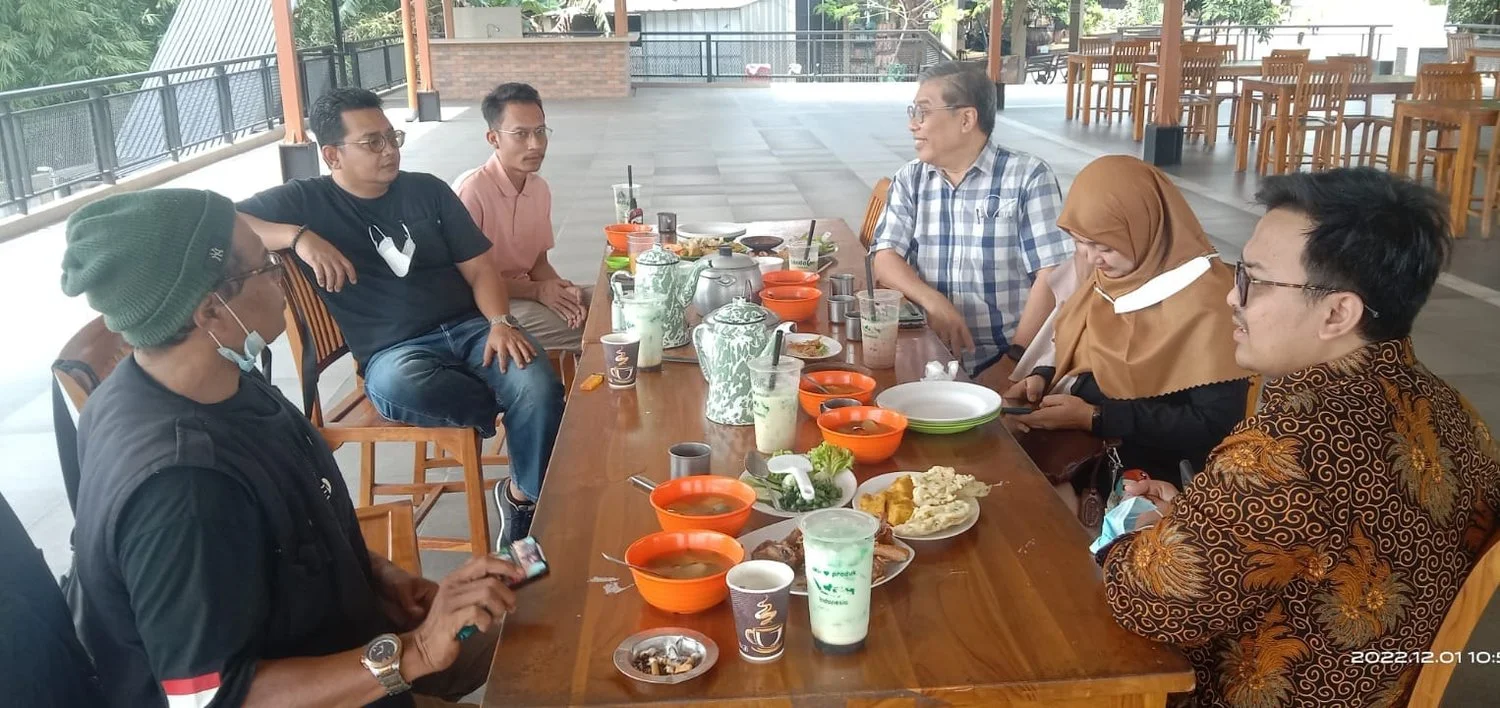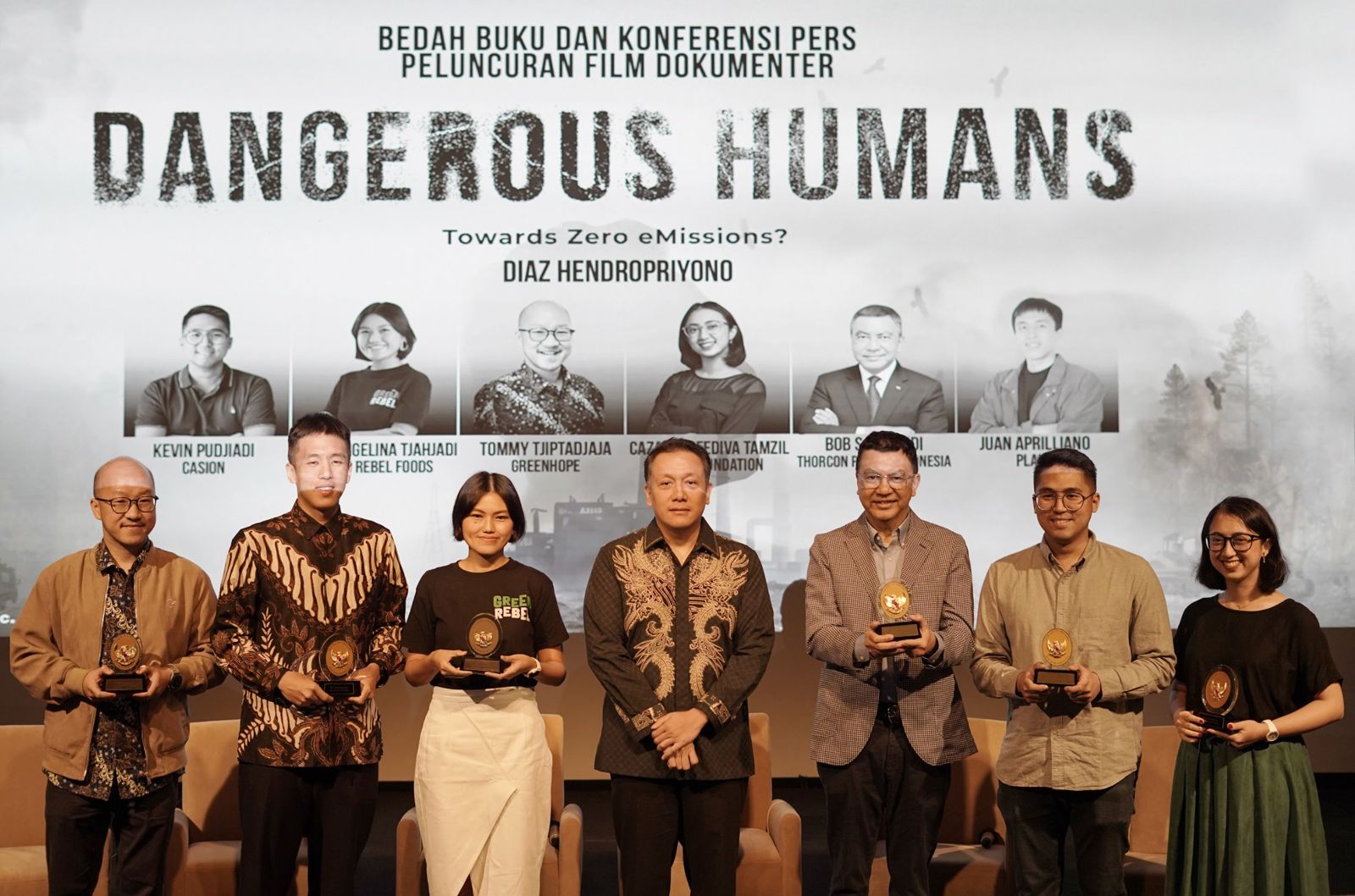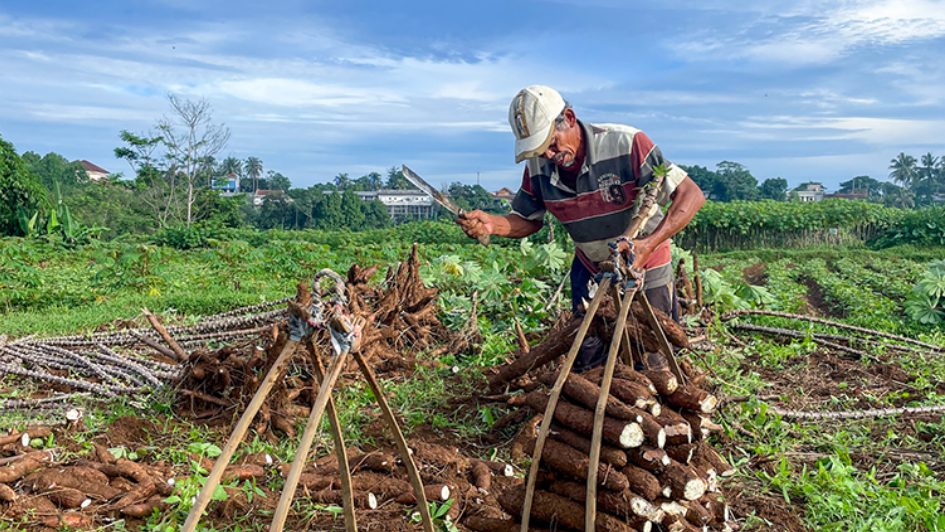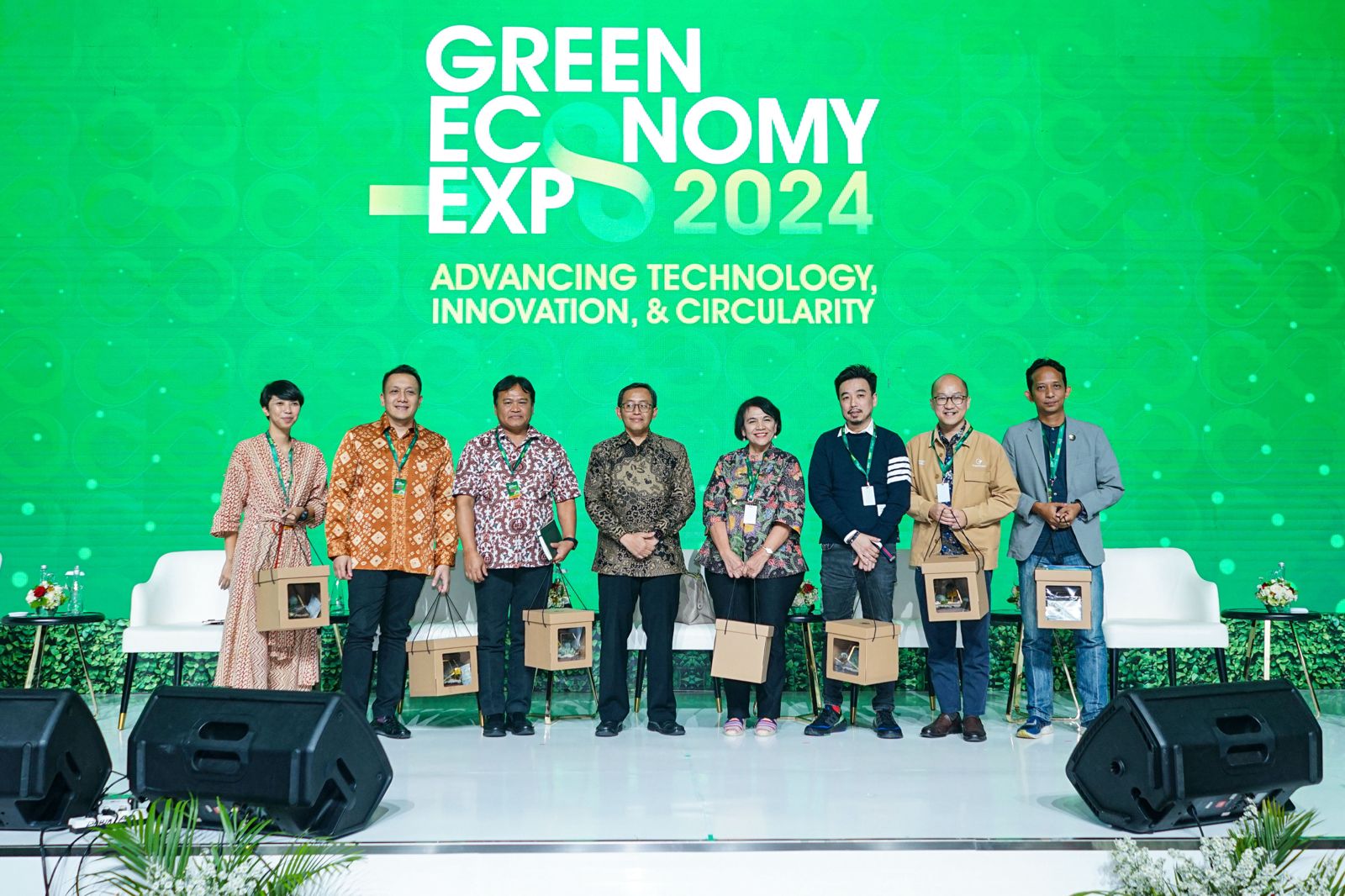Casual Chat about Plastic Waste Reduction by Bagong Suyoto
Tuesday, 06 December 2022
I was invited to meet at a culinary place in the Bekasi area, 1 December 2022. In a casual meeting we talked about reducing and using biodegradable plastics. Before many stories we ate liwet rice, fried native chicken and carp, sayur asam, sambel, etc. Village-style menu. It was really delicious.
We have been talking about biodegradable plastics, proper design and price, etc. for a long time because people have been so comfortable with conventional plastics. Conventional plastic does have its advantages; smooth, not easily torn, durable, low price, can be recycled, etc. And, this type of plastic is produced and supported by giant companies from America, Europe, etc. Also in Indonesia. Conventional plastics are supported by several associations, institutions, communities that have considerable resources.
Then, can people switch to biodegradable or environmentally friendly plastics? Even though the world, the United Nations declared war on plastic waste! In several international research reports, a number of countries are included in the level of the largest marine plastic waste polluters in the world, number one China, number two Indonesia, followed by several countries. While the United States as one of the largest conventional plastic producers in the world is not included in the group.
Whether the data is true or not, the fact is, the information of Indonesia as the second largest plastic waste polluter has spread all over the world. Indonesia has been affected. Something bad is attached to Indonesia.
The evidence is that Indonesia has a number of conventional plastic overlays, ilega landfills full of conventional plastic waste, open dumping landfills full of conventional plastic waste, watersheds / rivers to the sea are filled with conventional plastic waste. The environmental burden is getting heavier and the health threat is getting more real, and the water ecosystem and the creatures in it are increasingly threatened. In the end, the microplastic attack is becoming more massive. State/government and world leaders must realise this crucial condition. We are risking the future of Indonesia!!!
Then, the government designed various projects to reduce plastic waste, redesign plastic waste, clean up marine debris, etc. But all policies, planning and project implementation must go back to the basics. To move towards sustainable production and lifestyle, we must return to environmentally friendly materials.
As we want biodegradable plastics, the raw materials we use must be environmentally friendly, producing as little waste as possible. In this context, it is an environmentally friendly production cycle, a green future, a healthy life with a longer life expectancy. Developed nations are well established to think, behave and act like that, unfortunately they direct the sale of conventional plastic production and waste to Indonesia, and other countries. Do we remember the track record of imported export waste that flooded Indonesia. Indonesia is one of the destination countries for dumping and open dumping of waste from dozens of developed countries.
We, Indonesians, must change our mindset, behaviour and actions that adhere to clean, environmentally friendly production starting from environmentally friendly raw materials, especially in producing plastics. Whatever the challenges, Indonesia and its people need environmentally friendly plastics.
Bagong Suyoto Chairman of Yayasan Pendidikan Lingkungan Hidup dan Persampahan Indonesia (YPLHPI) and Chairman of National Waste Coalition (KPNas)



